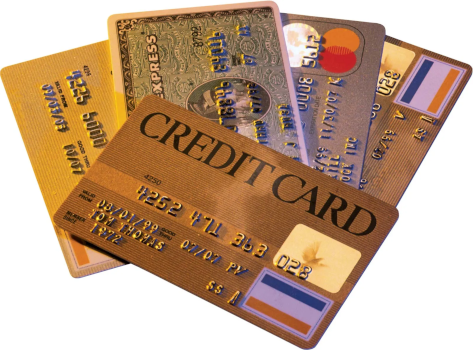I pay off my credit cards off every other week when I get paid. It’s part of my bi-weekly budget now. It seems to work for me. Is this normal and are there any downsides?
First, I’d like to share my opinion that any approach a person chooses to take in organizing and paying their bills is probably a good one as long as three criteria are met:
- The bills are getting paid on time.
- You’re not descending into debt using the chosen method.
- There is no extra burden on you, your energy, or time.
Paying off credit cards every second week, when you get paid, sounds like it passes all three checks. The cards are getting paid off before they are due, which means your debt load is probably non-existent, and paying a credit card twice a month doesn’t sound like a heavy burden on your time. In short, I’d say there is no real downside and it seems like this method is working for you, from both financial and organizational points of view. I’d suggest you keep doing what you’re doing.
Stepping back from this specific example for a moment, I’d like to say it has surprised me over the past few years how many different ways I’ve heard of people managing their credit card payments.
I’ve heard some people say they pay off one card with another, then pay off the second card with a line of credit, then pay the line of credit from their savings account. In short, they make a long string of payments, trying to delay the eventual transfer of cash out of their bank account.
On the far end of the spectrum I’ve encountered people who say they pay off their credit cards daily to avoid accumulating a balance.
Somewhere in the middle there are people who pay their credit card bill monthly, but wait until the last possible day so money stays in their account a week or two longer. Others pay off their balance in full right before the statement date to cause their statement balance to be $0.00. Some people pay their balance weekly and others the day after the statement date (about three weeks before the due date).
None of these approaches are necessarily bad so long as they pass the three checks listed above. I will say however, that some approaches I’d be more comfortable with than others. For instance, I wouldn’t want to leave my credit card bill to be paid until the due date. It’s always possible the payment won’t go through on time or there will be a power (or network) outage which will disrupt the payment. I don’t want to end up paying interest for a few days when I could have just paid a few days or weeks earlier (between the statement date and the due date).
Likewise, I don’t see any advantage to paying a credit card’s balance daily or even weekly. Unless your balance is close to the card’s upper limit and you need some spending room, paying it early doesn’t benefit the card holder.
Personally, I treat my credit card the way I treat every other monthly bill. It arrives (or I get notice of the bill) once a month, usually a day or two after the statement date. I pay it off right away, which allows the payment to wipe out my statement balance about two weeks before the due date. This is the same way I handle my phone bill, utilities, and other monthly payments. To my mind there is nothing special about a credit card bill that necessitates paying it more or less frequently than any other bill, or using special timing.
From the point of view of your accounts, the amount of interest involved, and your credit score, there is no real practical benefit to one method over another. The credit card company won’t care if you pay weekly, monthly, before the statement date, or after it, so long as you make at least the minimum payment before your due date.
Again, any approach which works for you and checks the three criteria above is fine. I think it’s a good plan to get into an easy, natural rhythm with paying bills – whatever that means to you.

Comments are closed, but trackbacks and pingbacks are open.